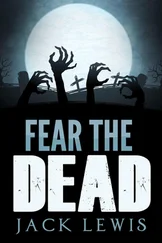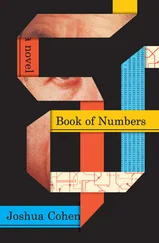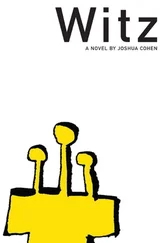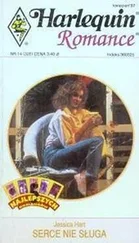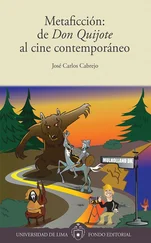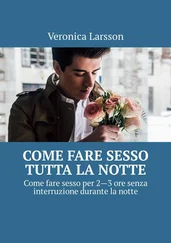I did a fine job on that building, finer workmanship than anything we saw on our tour save for a few of the older buildings — I’m talking the stolid stuff actually of the 1900s, those tiles and carvings from when we still cared about craft, those noble columns and colonnades and ornamental gutters — all the fineries I learned to duplicate, the techniques that usurped my writing to give me a destiny with salary and benefits.
You want Peterson’s Roofing to do up your house, but first you want to looksee our standard? Go down to auxiliary field #3—incongruous, isn’t it? insane, perhaps? jutting from amidst sports pitch and prairie, a skyscraper visible from the Mississippi, as the meeker, more Mormon guides claim when you take the tour of that campus. That slight wedge of trouble that has us wedged south of City Hall, that was Dem, that was me — clients call impressed, I do well for myself. Veri would thrive, twenty floors below that turbid eclipsing—1,750 miles away from 175 Fifth Avenue.
Professor Maury Greener was invited out to our flyover square state to be Writer in Residence for the 1992–1993 academic year on the merit of his recently published and only book, a novel about its author’s formative years so searing, so bridgeandtunnelburning and explicitly realistic that we couldn’t resist ravishing it for autobiographical fact (an interpretive approach that Greener both practiced and abhorred). So art reconstitutes biography — or better, biography like iron can make art like steel, but then the art can be heated again and the iron reseparated, the biography flowing molten all on its own — what a significant simile! such a suitable image! He — like his hero who shared his initials, height, weight, eye and hair color, wardrobe preference for wry denims, and predilection for deli — was born on the Brooklyn-Queens border, at the conjunction of those two potent, across-the-water boroughs so fetishized for having provided the nativity of so much authentic, impactful culture of the century past: Irish, Italian, Jewish, and he was the lattermost, he wouldn’t let you forget it. Greener was the first Jew I ever met. Now I was a student of literature, not a student of the study of literature but of the making of literature (already there was the vocational calling: the desire to be trained to task, to do, to make ), and though I was a voracious reader of the right writers — the lustier ethnics, the WASP authoritarians — practically speaking, my experience was nil. Jews were in the Bible, they were of the Bible. They weren’t on my TV or in the movies I borrowed, but they made the TV and movies. I didn’t expect him to have horns or anything — it was Dem’s family (typically exasperating inlaws, but also bison ranchers) who’d passed along that stereotype and when Dem mentioned it to me after reading up on Greener before he arrived, I immediately imagined a man with airhorns, or megaphones, grown out of his head — and it wasn’t like I was expecting a version of Shylock or Fagin, but I was not prepared for the irony, that fuck you and fuck your mother cynicism. This was because — memoir, self-writing again — he was raised without a father and had to toughen up fast. He had to learn — he taught himself, as his protagonist, M. Groonik, had taught himself — how to fight, how to stand up for what was his. What was his was Stuyvesant, followed by climbing the Ivy, uptown — rungs above the college Veri and Dem and I were touring, eons — humanities educationwise — beyond our own peonic undergraduate and graduate careers. And of course he had his book, which followed this titular Groonik, “amateur erector cum semiprofessional ventilation inspector,” through myriad ménages à trois and quatre in downtown New York of the mid-1980s. What that book earned him: low advance on low sales, hysterical acclaim, and, once remaindered, once out of print, this sinecure stint in the provinces teaching us hicks to rite good.
It seems that the ’80s — the decade of my adolescence spent lurching dazed between milking and collecting eggs at my parents’ dairy farm and videogaming after homework — was the last tolerable decade in New York, despite the city going broke, despite the crime: it was Greener, who had eight years on me, who taught me to qualify. For him it was the decade of punk rock, hip hop, rap, graffiti as art, heroin and coke, a scene where everyone became millionaires at their mixed media before dying of AIDS or, as Greener wrote, “wrote excessive books about excess that were never excessively read” (though, he once recommended, the hardcovers’ dustjackets were useful for cutting up lines) — the last decade before the encroachment of the rest of the country, before the suburbs moved into the urbis. All that pseudoculture that Greener hated: the chainstores, the megamalls, the ATMized shopfronts unmanned but anyway lit and heated and airconditioned 24/7/365—he hadn’t been around any of that before it began coming to New York (downtown definitely has all the familiar logos by now), and just when it came he decamped to its source. He came to our state, our city, our cow college town — the world capital of bad depressing homogenous capital. We had — we still have, unupdated, unredone — an airport, then a strip of consumer options, then, up the hill, the College on the Hill and, when he first arrived, his second night with us — arrived unaccompanied at 35, balding and fattened like a species of livestock new to us who knew our livestock, but still recognizable as ready for slaughter — he invited Dem and me out to dinner along with a half dozen fellow students, but not because he wanted to bond.
He said, Don’t think I want to bond, it’s just that your girlfriend’s too pretty, which for him passed for a compliment.
He stood us a round of dollar margaritas.
I didn’t have the heart to tell him, my fiancée (that character still sounded too foreign).
All throughout dinner we were introduced to that hilariously raw style of metro complaint, the perpetual bitching of the provincial Manhattanite: could the food be any worse? could the service be any worse? could the fluorescents be more industrially fierce? which were cornier, the corn tortillas or the restaurant’s muzak and decor (the decorations were stapled sombreros and hefty husks of lacquered maize, a burro mural in dishwater pastels below dishsized speakers blatting juvescent pop top-40)? could the conversation at the surrounding tables be any stupider? could the people tabled around him be any stupider? He was caustic. Could he get a new knife? He’d drunkenly clunked his last to the floor.
The food was nominally Mexican (his request) — did we take him to Taco John’s or Casa Agave? I’m not sure which chains we had then — pre-Chi-Chi’s, ante-Chipotle — Chili’s?
About as Mexican as Hitler, he said, As Mexican as spätzle, he said, then, after the flan, wiped his mouth with the zarape that served as tablecloth and said:
Here’s your first assignment.
And then took a shot of tequila and said, Margarine-flavored tequila.
For our virgin workshop in this burg, I want you to write a story about our dinner tonight, but make me out to be the biggest asshole possible — I want to be fictionalized, hyperfictionalized, let your imagination graze free on the range — have me robbing this joint, have me taking a shit in the rice and beans, out me as this pretentious pinko kikeabilly snob, though still deigning to rape your wives, he looked at Dem then looked at me, winked.
Hand that in, he said, or else.
Or else?
(It was like the entire waitstaff asked that too.)
Bring me anything you want.
Staggering out of the restaurant he was slurring, But I’ll only read a story if it’s finished.
Читать дальше

